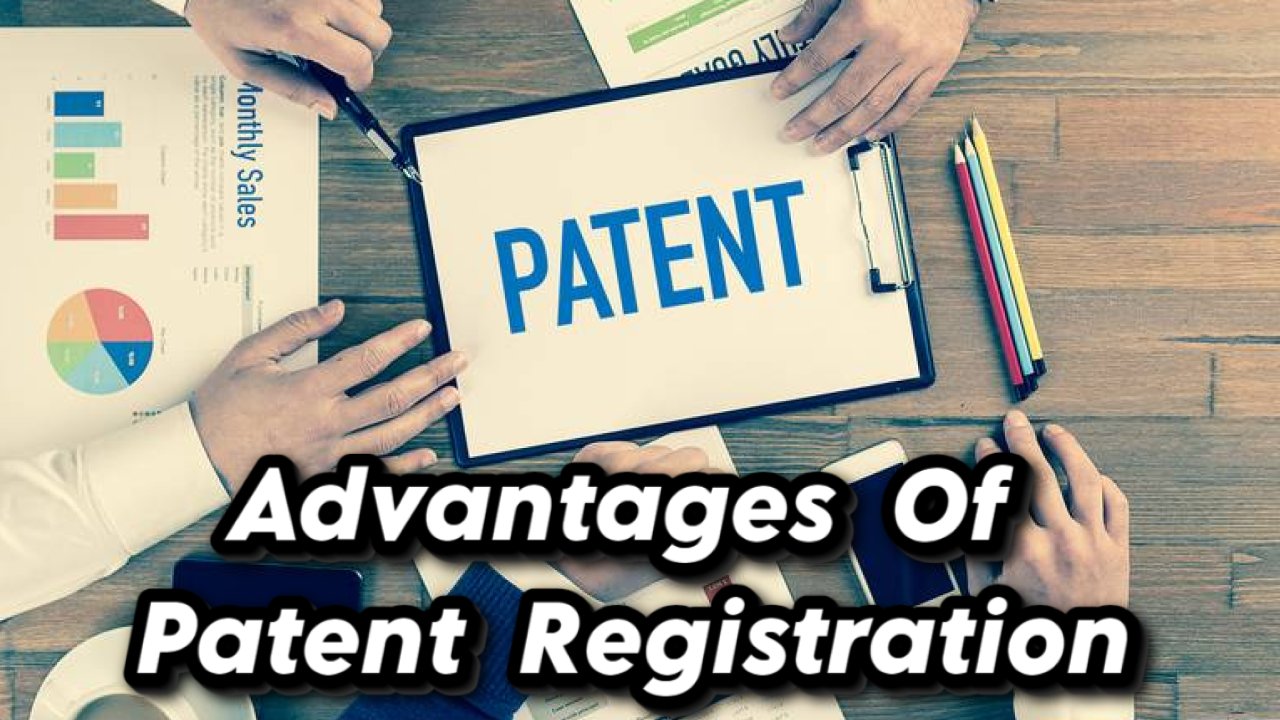ADVANTAGES OF PATENT REGISTRATION IN INDIA
This article elucidates the significant advantages associated with patent registration in India. Emphasizing the patent system's pivotal role in fostering innovation, the narrative underscores the exclusive rights conferred upon inventors and the imperative need for international patent registration for comprehensive protection. Delving into the essence of patent registration, the article explores the multifaceted benefits, elucidating the protection against infringement, the potential for trading patented inventions, and the strategic advantages of early filing. The exclusive rights vested in the owner, coupled with the potential for increased profits and market exposure, further underscore the strategic importance of patent registration. Additionally, the article highlights the role of patents in encouraging innovation and stimulating creativity among enthusiasts.

The patent system encourages individuals to develop innovative ideas and concepts by granting them exclusive rights to their inventions. Once granted, the patent allows the innovator to trade and license their creation. However, it's important to note that a patent registered in India is only valid within the country's borders. Therefore, for worldwide protection, an international patent registration is necessary. Overall, the patent system impartially supports innovative concepts, leading to the progress of nations. By securing a patent, owners can secure the benefits of steady growth over time.
Let's understand what Patent Registration is?
A patent is a legal right granted to the inventor for a limited period. It gives the patentee the exclusive rights to control, make, use, sell, or import the patented product or the process for producing it. By registering the patent, the inventor can have complete authority over their invention and can prevent others from using it without their permission.
Advantages of Patent Registration
1. Completely protect against infringement: As an innovator, you have the legal right to prevent others from copying, producing, or selling your innovation without your permission if it has a patent. This protection is granted for a limited period of time. Patent registration offers several benefits, and one of the most significant is keeping infringers and competitors away.
2. Patented Inventions May Be Traded: Instead of selling the patent, licensing it can generate long-term income. It can give your company a reliable source of income. The same idea underlies the operations of other companies, which generate revenues from licensed patents, possibly in combination with registered trademarks and designs. This is the most beneficial aspect of patent registration in India among all the advantages.
3. Access to All Rights Is Granted Upon Early Filing: When inventors are still in the research and development stage, they can submit a provisional patent application to initiate the patenting process. Once submitted, the invention is granted exclusive protection from the patent office for 12 months, during which time no third parties can make patent claims on the invention. Even if someone else submits a patent application similar to the invention, it will be rejected by the authorities. This means that filing a provisional patent application early on grants inventors access to all rights and protections associated with their invention.
4. Owner’s exclusive right: The inventor has the right to use the innovation for any purpose for 20 years for the granted patent. The Existing Invention may not be used, sold, or modified by anyone other than the Inventor throughout the Term without the Inventor’s prior written approval. Also, in the case of a disagreement with the parties involved, the inventor has the sole right to take legal action.
5. Increase Profit or Returns: Having a patent gives the owner the exclusive right to make money from their invention by commercially exploiting it. This allows patent holders to gain market dominance and profit from the invention because they alone have the right to create, import, sell, and use it. A patent can also increase the value of an innovation by offering buyers a new method of accomplishing something or something unique and distinctive. This is because competitors are not allowed to offer a similar product, which can normally lead to an increase in returns and sales.
6. Enhance Market presence and exposure: Under patent law, inventions can be shared in the public domain. This can benefit the owner by enhancing their public image and strengthening their current portfolio. In turn, this can improve the inventor's standing in their intended market, leading to higher sales figures. Additionally, a patent can be commercially useful for opening doors to new markets through partnerships, joint ventures, and mergers. Patent portfolios can enhance a business's reputation for innovation and facilitate access to new markets and commercial partners. This can be particularly advantageous for start-ups and investors.
7. Encourages Innovation: The purpose of the patent system is not to attract investors who are only interested in the latest technological advancements. Instead, it motivates creators to improve existing technologies that have a significant impact on human lives. Innovation can be defined as a revolutionary improvement of a technology that is already in use and meant to benefit humanity.
Obtaining a patent requires a unique and cutting-edge idea that adds to the existing knowledge, which is not an easy feat. Most inventions are created in response to a specific problem or situation. One of the primary advantages of patent registration is that it stimulates creativity among enthusiasts.
Conclusion
It is essential to register a patent to prevent unauthorized copying, as defaulters can profit from it. By registering a patent, the owner can enjoy all the benefits that come with it, including increased business growth, higher profits, and a better understanding of the market and competitors. Registering a patent also protects the owner's rights over their invention and prevents infringement. Therefore, it is crucial for patent owners to take the necessary steps to protect their intellectual property.












